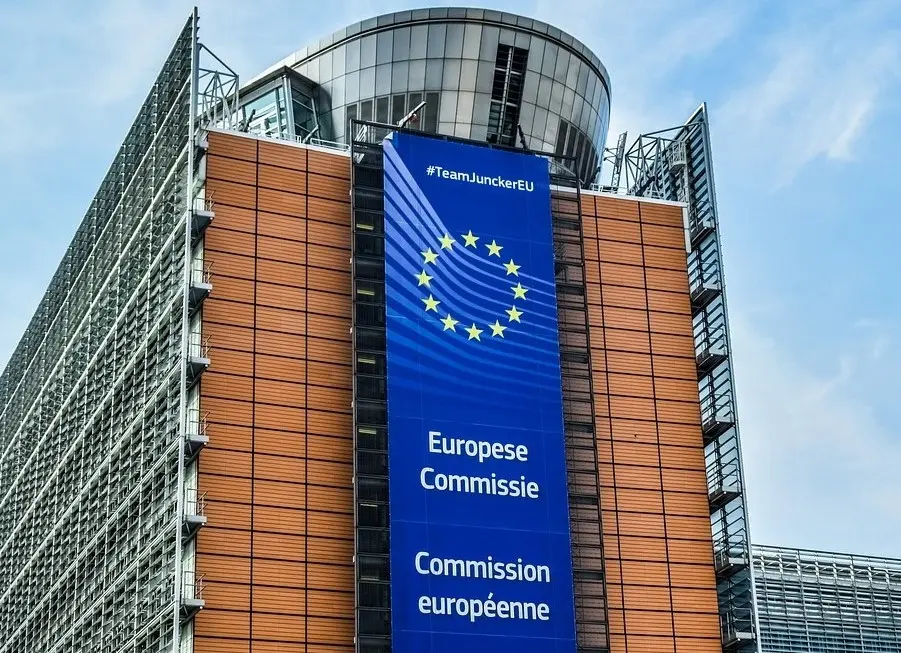
EU Financial Centers Roundtable Priorities for 2024
The competitiveness of the EU in the area of financial services is an important concern for all members of the EU-RFC. The roundtable members welcome statements made by the EU authorities to improve competitiveness rapidly and comprehensively. Otherwise, there is a risk that the EU will fall further behind its global competitors in several key areas, such as the capital markets. More competitive EU financial markets should be orientated to EU needs and financing EU corporates and citizens.
Members of the EU-RFC even more underline the huge financing needs to accompany the economic challenges and the ecological and digital transitions, and therefore the necessity to accelerate the implementation of a concrete Capital Markets Union (CMU), with a stronger political will at EU level, and the necessity to bring together all Member States of the EU, including smaller countries of Central and Eastern Europe, which also have important financing needs.
In this context, EU-RFC members understand their specific role as facilitators between the financial industry and the users, corporates and investors (institutions or retail). One key role should be to contribute to an improved financial culture by promoting financial literacy and resilience. – Amongst other things, this means that the opportunity risk related to not investing should be highlighted, conditions to mobilize more investments toward the competitiveness of the EU economy, including SMEs.
More precisely, the EU-RFC intends to draw the attention of the EU Authorities on the following priorities:
1-The necessity to properly calibrate and schedule EU regulations vs strategic objectives to increase the capacities of the European financing system as a whole, at a time where it needs to be reaccelerated.
Indeed, the need of new capital is huge. In a business-as-usual context, the banking industry is able to finance around 500 bn euros a year. The new context implies to mobilize 800 bn for prudential capital plus 600 bn every year for the financing of the Ecological & Digital transitions until 2050, according to the European Commission’s new Sustainable Finance Strategy. Those resources should be provided both by the banking sector, as well as by investors through capital markets. Among them, particularly important is the role of the insurance industry, which is the largest institutional investor in Europe. This gap in capital needs implies a strong political ambition and actors’ mobilization.
In this context, the roll-out of effective incentives for the creation of a larger domestic investor base which could allow for additional capital flows into EU businesses is paramount.
More specifically and to accelerate the EU harmonization and the facilitation of access to European markets, the EU-RFC recommends focusing on the due implementation of existing rules and regulation instead of developing new legislative initiatives, and furthering supervisory convergence.
2- The necessity to refine rules and organize a more coherent Sustainable Finance Action on European level to accompany the ecological transition.
The next European Commission will be the last one before the 2030 accomplishment of the first objectives of the European Green Deal. The EU- RFC underlines that the objective is not a sprint, but a marathon to ensure the long-term perspective.
The first priority must be to lighten the administrative burden and to refine and simplify the European rules, as well as to verify how the trio taxonomy/ SFDR directive/ CSRD directive works and is coherent, by organizing the consultation of the market-players. Full interoperability with global ISSB Standards to create global level playing fields is warranted. It is equally necessary to analyze the impact of these directives.
The second priority is to focus on transition plans, because corporates are the key actors to progress from “brown to green” following a sustainable and trustable path. It is then necessary to define more precisely how these transition plans must be organized and supported in a convergent way: objectives, roadmaps, agenda, investments needed at each step of the plan. This should be the base for banks and investors (in equities or bonds) to align financing decisions with those measurable concrete sustainable actions.
3- The need to urgently relaunch the Securitization Market in Europe, which is key to allow banks to finance the economy while sharing risks with other market participants.
The European securitization amounted to 85% of the US securitization in 2008 and only 10% today, while this tool, having been revamped to largely eliminate the moral hazard issues that led to the financial crisis, has an important role to play to fulfil the investment gap. Securitization is a structural tool as Europe prioritizes credit financing for corporates in a context of higher prudential constraints on banks’ balance sheets. To maintain this financing model, it is thus necessary to share those balance sheet risks with other investors. If not possible, the financing gap between needs and capacity will not be addressed.
Discussions have been held with the European Commission, the European Council as well as with the European Parliament and the European Supervisory Authorities, on the recalibration of their prudential requirements for banks, as well as on the reconsideration of Solvency 2 to facilitate the investment by insurance companies, and on the review by ESMA of excessively burdensome reporting requirements.
The EU-RFC underlines the necessity to act urgently to develop securitization facilities at European Union level.
4- A necessary review of the European Commission’s Retail Investment Strategy (RIS) proposal.
The retail investment strategy is key to mobilize the retail segment towards capital market investments, be it directly or through funds intermediation. It means increasing financial education and controlled risk-taking abilities, encouraging a mindset supporting that citizens are responsible and should be allowed and enabled to make self-determined decisions based on their individual preferences. Furthermore, retail investors should, after being enabled to make self-determined decisions, have a broad range of financial instruments available to fulfil their investment strategies. To that end, it is important to open corporate bond markets to retail investors and to reduce regulatory obstacles, such as the PRIIPs regulation which characterizes many simple corporate bonds as packaged products, thus limiting the tradability for retail investors significantly.
Whilst fully supporting the fact that investment firms should accurately inform clients, be transparent on costs and properly manage potential conflicts of interest when providing investment services, the EU-RFC points out that some of the Commission’s proposals do not sufficiently take into account the various business models that exist within the European Union, and that they appear unlikely to result in better investor protection.
The MiFID II Quick Fix related to research unbundling made strikingly clear that once existing business models are overhauled, they can hardly be reinstated, to the detriment of all stakeholders involved, including retail investors and SMEs.
Instead, we would advocate for the existing legal framework to be strengthened, rather than new rules to be introduced. In this regard, it is of importance that legislators and supervisors across the EU adopt measures in a similar way and avoid gold plating.
Obviously that strategy should also rely on accessible research especially on SMEs. The actual financing process of such research is still problematic, although recent amendments to MIFIR contained in the Listing Act seem to go in the right direction, specifically by allowing bundling of both research and executive services.
5- Nurture Innovation & Digital Finance, and accommodate related financing needs.
The EU-RFC underscores the necessity to accelerate innovation, but also acknowledges the European regulatory “tsunami” which concerns all the aspects of the innovation and the new digital finance: MICA, PSD3/PSR, FIDA regulation, DLT pilot regime, or the AI act. Once again, it is important to ensure the best coherence and the efficiency of all these new regulations to accompany and not destroy new activities and digital innovation. Furthermore, EU regulators should maintain a technology neutral approach, focusing on same business, same risk, same regulation principles.
Another question relates to the difficulties for European Fintechs in accessing venture capital, in the present context where the funding has become more difficult, particularly at the scale-up stage. The EU-RFC calls upon all stakeholders involved to jointly assess best practices that can be levied to provide the necessary funding to deliver the European “unicorns” of tomorrow.
6- A stronger priority on the Competitiveness issues on European level.
Finally, the EU-RFC fully supports the recommendations of the European Economic and Social Committee on the necessity to carry a systematic “Competitiveness check” for any new EU policy and law-making process, as well as to include the competitiveness of the European market players in the mandate of the European regulatory authorities.
The EU should continue to focus on its strengths, which lie in the diversity of its Member States. Harmonization across the entire EU has often proven to be difficult, and is not always the right first step. The EU should be open to different, competing approaches from groups of Member States to achieve common goals.
The EU-RFC also underlines the necessity of a stronger dialog with businesses, at both national and EU level. The Roundtable and its members are keen to fulfil their role as facilitators of such dialog, and to accelerate the exchange of best practices and the partnerships between the European financial Centers.
